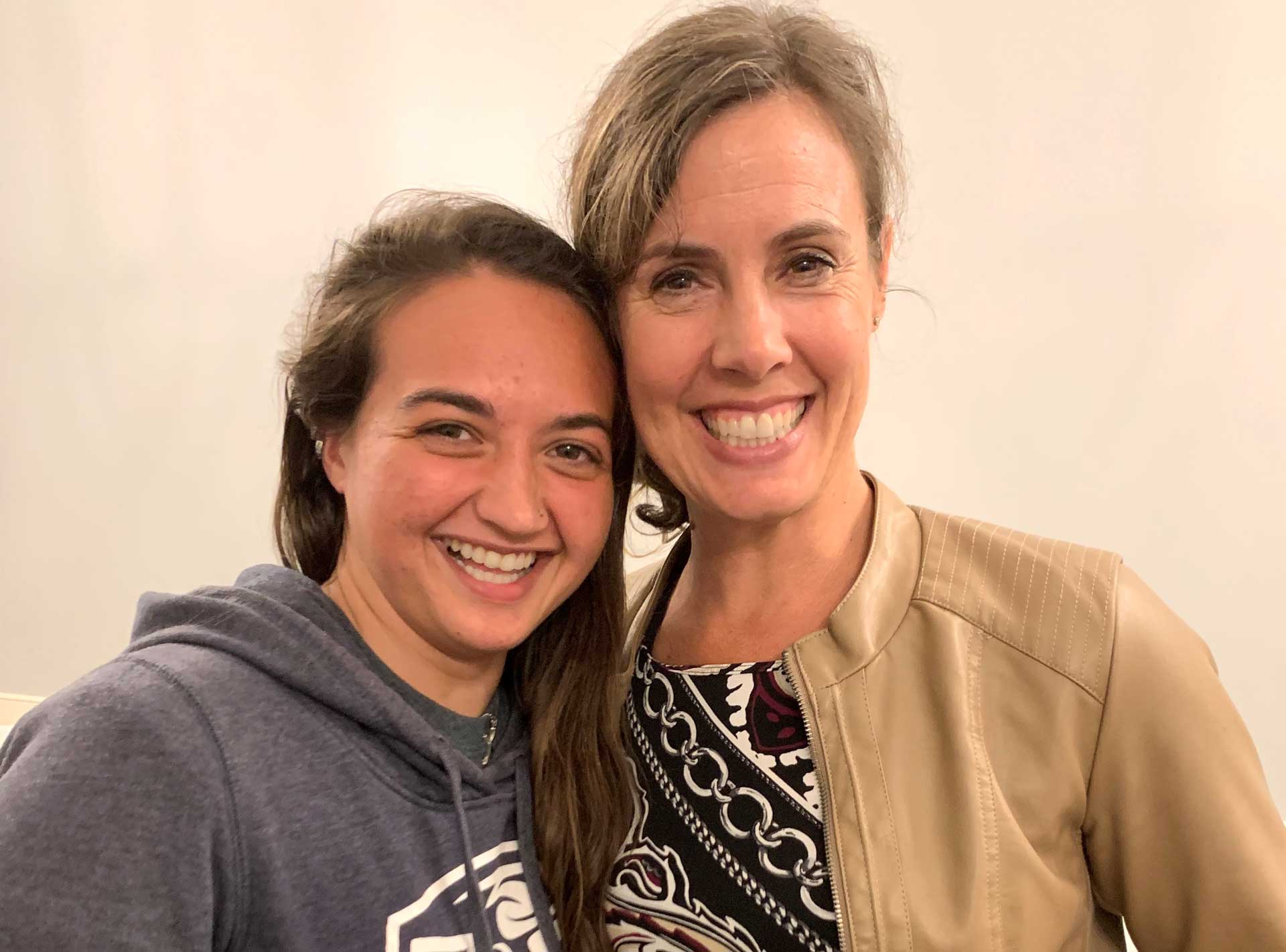Featured Articles
Worth the Cost
Published
4 years agoon
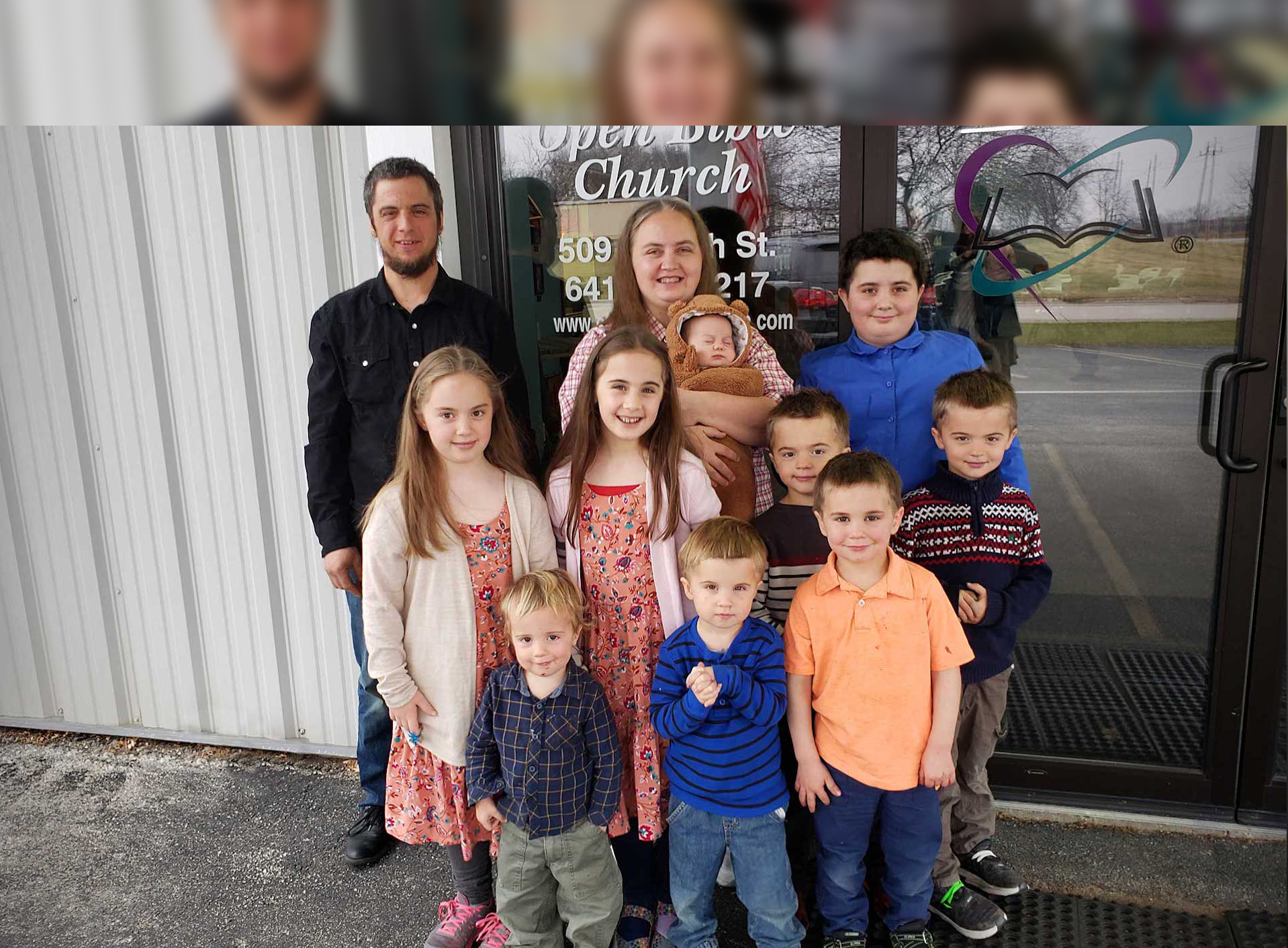
By David Borntreger
Malinda and I grew up in traditional and happy Amish homes. I have five brothers and five sisters; Malinda came from a family of twelve. After Malinda and I started our own family, we continued in the Amish way of life we had always known.
We began hungering for more of God, which led us to reading everything we could get our hands on about faith. And that caused us to question some of our traditions. I began to wonder why we didn’t minister to people outside our community, so one day I asked the bishop his views on supporting ministries like those supplying Bibles to people in China.
He said, “Our emphasis is on taking care of our own. We don’t have insurance, so if someone has a hospital bill, we help with that.” To me that didn’t make sense. The Bible talks about going into the world and preaching the Gospel. Little did I know my eyes were starting to be opened.
When I asked my dad why we didn’t reach out to people in other countries he said, “The thing is, if you go over to other countries it would threaten your culture.” For instance, we are not allowed to have photo identification. Even boarding a plane is not allowed in the community.

One of the books I read called out some of our practices as occultic. That got my attention. One of the practices the author questioned was water dowsing. Typically the person that is “dowsing” holds two sticks or rods and walks around a property in the hopes that the rods will dip, twitch, or cross when the person walks over underground water. This and other similar traditions had been rooted in our culture for many generations.
About five years ago, shortly after Thanksgiving, I went to talk to my dad about some of these issues the book had raised. When I arrived at his house, he happened not to be home, so I started talking to some of my brothers who still lived at home. I got a mixed reaction from them. Finally my dad came in and sat down. He listened a short time, and then in an authoritative voice I’d never heard before said, “You lay that book down and don’t quote it in this house again!”
I knew I was on to something big. I talked to a few other people, but then the bishop got after me. I didn’t realize the offense he would take. The Amish highly regard their forefathers and their traditions. The whole thing became a circus of sorts. Soon the whole community knew I was addressing issues, raising awareness. I was confronting our long-held traditions. The bishop said he didn’t want to defend water dowsing necessarily, but because one of the deacons he knew was still practicing it, he didn’t want to condemn it either.
I felt I had concrete evidence that the practice was wrong, but we were not allowed to condemn it because our forefathers had done it. Water dowsing opens the door to divination. Some people will use the rod for other purposes. They will ask it questions about the future. They know that the practice is not based on science, but they ascribe the results to God. I also learned about other people turning to other occultic practices, but the situation was being hushed up.
My wife and I studied more about the Holy Spirit with the input of some close friends. We became interested in certain biblical prophetic ministries – crazy for an Amish guy! I made a name for myself as a rebel.

Around this time, Malinda was studying the Bible. In our Amish church the ministers are the preachers; lay people have no opportunity for expression. The rest of us are given specific selected passages to read for the next service. We are discouraged from digging too deep into the Word or studying it on our own because our leaders are afraid we will be misled.
As Malinda would read a passage, she would say, “Look at this, David, they preach it this way, but the Bible says it this way.”
I would reply, “You can’t come against what the preachers preach,” to which she would reply, “But they aren’t preaching what the Bible says.”
I became more aware of what the preachers were preaching. They would always admonish us to keep the traditions of the elders. Our traditions are said to be biblically based, but sadly, much like the Pharisees, we rely on the traditions more than we rely on God. In Matthew 15 the Pharisees and teachers of religious law got after Jesus for allowing His disciples to break the commands (such as washing their hands). Jesus told them they were violating the direct commandments of God because of their traditions. I became aware of so many similarities between the Orthodox Jews and the Amish. If you look at a photo of an Amish man and a Jew with black attire and broad-brimmed hat, it’s hard to tell the difference. In fact, I’ve been asked if I can speak Hebrew. I say, “No, I’m not Jewish, I’m Amish.”
Malinda and I dug deeper into the Word. We love the New Testament church! We had so many questions: “Why don’t we have those (New Testament) experiences? Why doesn’t anyone speak in tongues?” No one would answer my questions.
Most Amish in our community think you cannot know if you are going to go to heaven or not. This, I believe, testifies to the fact that the Amish, like the Jews, are very legalistic, Old Covenant-minded. They confess Jesus, yet believe in a works-based salvation. It’s very confusing. They don’t grasp the most exciting part of the Gospel, that Jesus paid the price for our atonement through our faith in Him!
Growing up we didn’t get much information about baptism. We had both been sprinkled as youth. I used to wonder why we didn’t practice baptism by immersion like they did in the New Testament, and then one of Malinda’s relatives gave her a book that explained what baptism meant in the original language. We learned that immersion is the biblical method for baptism. We studied Romans 6, which says we are “buried with Christ” through baptism. When you get buried in the watery grave, it’s like your old man is being buried. You are a new person. We discovered immersion is the most common form of baptism, especially in persecuted countries.
Our problem was this: how do you get baptized by immersion in the Amish church? They don’t allow baptism by immersion. It was not in our tradition. I presented our desire to the ministry, and it didn’t go well. They wouldn’t do it. They told us we were being discontent and that we would be excommunicated and condemned by our families if we were baptized by immersion.
This brought us to the hardest decision in our 33 years of life: obeying God or man. We were both part of closely knit families. The prospect of being cut off from them was more than disheartening. And yet we felt we needed to submit to God in everything He asked us to do.
In desperation, I cried out to God for a word of confirmation. A day or two later, a car drove up to our house. Inside was a lady I barely knew. Her cheeks were tear-stained.
I asked, “Why are you here?”
She said, “The Holy Spirit sent me.” She related that for a week, the Holy Spirit had been giving her a heavy burden to pray for us.
“Was there any earthly reason for that?” I asked.
She said there wasn’t and assured us that she knew nothing of our struggle.
“So you are not telling us to go back to the Amish way of thinking?” I asked.
“No, not at all.”
I thank the Lord for His confirmation. On June 16, 2020, Malinda and I were baptized by Mark Smith in Crystal Lake, Iowa. It was a wonderful experience coming up out of the water, knowing we had done what God wanted us to do. I encourage everyone to follow Christ through baptism. It’s so much simpler than other things God asks us to do, such as always thinking pure thoughts.
It was so simple, but it cost us so dearly.
When our church found out we had been baptized by immersion, they placed us in the ban. We were condemned. It was hard. We had just been baptized; we didn’t want to lose our family or our church. Before this time we were close to our families. Now our brothers and sisters think we have gone off a cliff, that we are crazy. Malinda’s family members in Wisconsin think we left our faith. Her mother sent her a letter telling her she was no longer welcome in their home. We are not welcome to attend funerals or weddings, even for our family members.

We became outcasts. We were kicked out of our church. People in our Amish community can’t have business dealings with us. Almost all our Amish acquaintances condemn us and gossip about us. Our younger siblings, even though more open to us, are not allowed to talk to us. I don’t want to cause any more trouble, so I don’t attempt to talk with them. I recently drove by an Amish farm auction, and everyone stared at me like I was going to hell.
We are still hurting. But we are so thankful for our family at First Church of the Open Bible in Clear Lake, Iowa, especially Pastors Will and Joyce Hunsaker and Associate Pastor Adam and Katie Henaman, who give us advice on how to walk with the Lord. We took Jesus at His word when He told us that we are to “go and make disciples of all nations, baptizing them in the name of the Father and of the Son and of the Holy Spirit.” This simple act of obedience has cost us dearly, but it has been worth the cost.
Watch David and Malinda give their testimony below.
About the Author

David and Malinda Borntreger live in Northwood, Iowa, and attend First Church of the Open Bible in Clear Lake, Iowa. David is self-employed and spends much of his time raising goats and growing vegetables. The Borntregers have nine children.
Click Here to watch David and Malinda share their testimony.

In 2017, my husband Dyecol and I were asked to be the interim pastors of Word of Life Open Bible Church in Lehigh Acres, Florida. Little did we know that our two weeks as interim pastors would turn into seven years and counting. After accepting the call to be the permanent pastors, we moved to Lehigh in September, right after Hurricane Ivan had hit. There was no electricity in the city, and it felt like we were moving into darkness and chaos. I didn’t realize we were also moving into the rest of our lives.
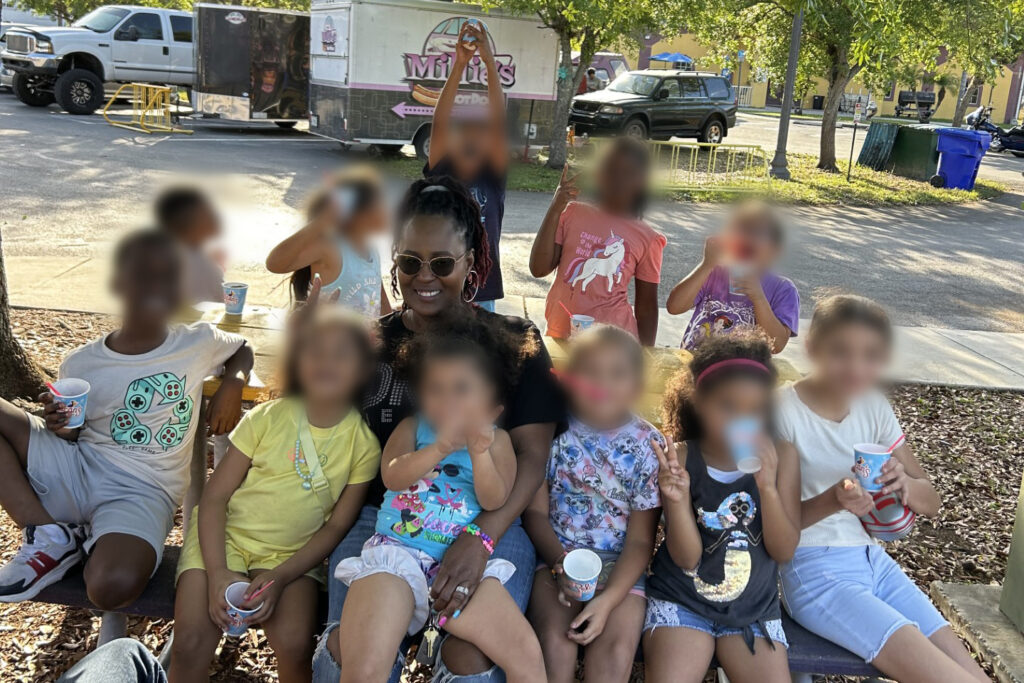
Dyecol and I had never had children together. Shortly after our move to Lehigh, we saw a billboard for an adoption agency. Dyecol went to the agency’s office for more information, and it wasn’t long before we were taking a class on adoption. The instructor of the class emphasized how much greater our chances would be to adopt through fostering, and pretty soon we got our first call to foster a three-year-old girl named Isabella. I will never forget seeing that scared little girl walk through our doorway. I scooped her up in my arms, she laid her head on my shoulder, and my future was sealed.
We’d had Isabella for only a month when we got a call for a second little girl, Maria. Maria’s sister Ruby would join her a few months later, and not long after Ruby, we got a call for a fourth child, our first newborn. This baby was only six days old and had been born addicted to drugs. We were told her parents didn’t want her, and we became excited that this baby might become ours. We attached, weaned her off drugs, and she began to thrive. It was then that her biological father decided that he wanted her. As difficult as this was, it was further complicated by the fact that our hopes of adopting the other girls fell through around the same time. We were shattered. This taste of parenthood had convinced me that I wanted to be a mom again, but fostering was too difficult. I told myself, “Never ever again!” Until I got the next call.
Sometimes God walks you through a process of loss and then He dumps blessing on you when you least expect it.
“Ms. Walker, I have a little girl for you….”
“I don’t know, we’re taking a break.”
“Ms. Walker, I’m telling you, you’re going to want this little girl.”
(Deep Breath.) “Okay.”
Our case worker brought over this ten-year-old little girl with big old grandma glasses, fuzzy hair, and the cutest smile. That little girl walked into our lives, and she has changed us forever. Her name is Anna-Tae Walker, and she became our first adopted daughter. Two months later, we were introduced to our daughter Heavenly. We loved her from the moment we saw her. Sometimes you just know. I said to my husband, “She’s not leaving.” True to my word, Heavenly AND her brother Joshua became ours through adoption.
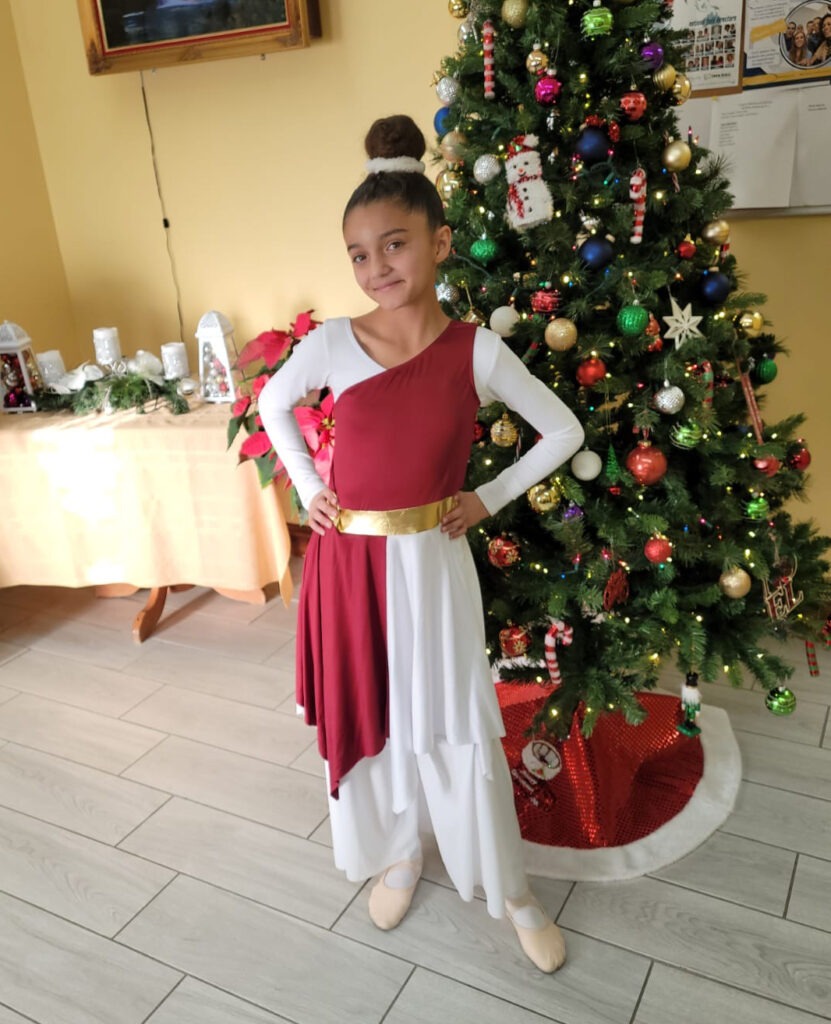
Sometimes God walks you through a process of loss and then He dumps blessing on you when you least expect it. I didn’t understand why we couldn’t have the first little girls we tried to adopt, but God said no. He knew who our kids were.
Despite my having three adopted children, I continued to take new placements. My first experiences fostering almost broke me, but as I continued to say “yes” to each new child, God reinforced my heart with His strength. Instead of shrinking with each loss, my heart grows bigger as I watch family reunifications. God has gifted me with the capacity to love and to lose.
One night as I was lying on my bed, the Lord gave me a word: “Walker’s House of Hope.” I told my husband, “This is what we’re going to name the house where we raise the children God brings to us.” We started praying, “Lord, if you give us a bigger house we will take more children.” At that time, we had seven children in a three-bedroom house. It wasn’t long before the Lord provided us with a four-bedroom house.
God has gifted me with the capacity to love and to lose.
I got the call almost immediately: “Ms. Walker, we have a sibling group of three.”
“You know I have seven children, right?”
“Yes, Ms. Walker, but you were born for this.”
Immediately the voice of the Lord came to me, reminding me of my prayer. He had given me a bigger house; I was obligated to fulfill my promise. So, we ran out and bought another bunk bed.
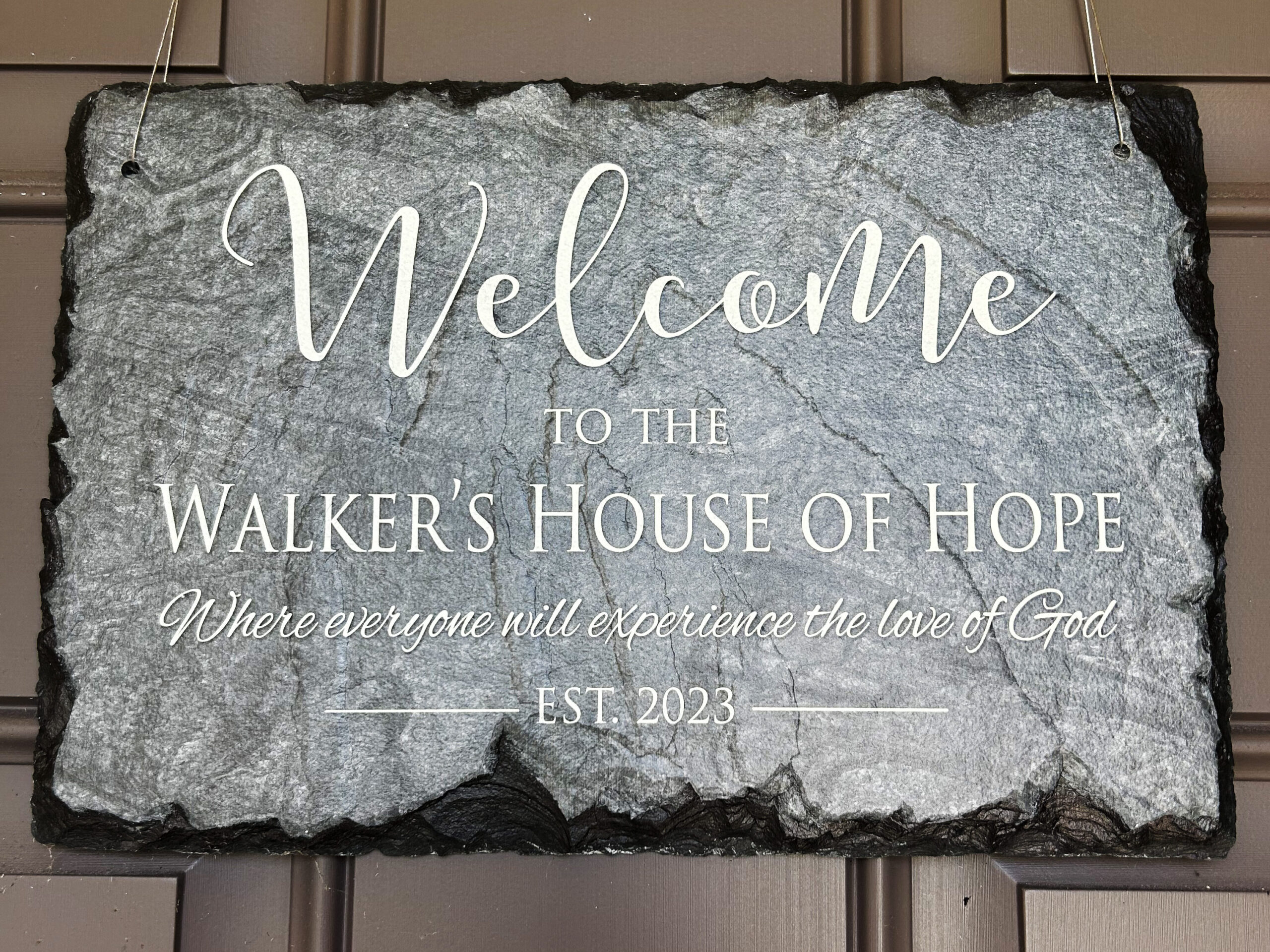
Today, we have ten children: three adopted and seven fostered. Every day after school, I hear ten voices at once, beautiful chaos. Each time I say aloud, “I have ten children,” I can’t believe it – not because it’s too much, but because it feels comfortable. When I dream about the future, I see myself with even more children, running around a big property and coming in to eat dinner around our huge kitchen table. I have found my calling, and I am believing for God to gift us with the house that’s as big as my heart.
I had a sign made that hangs in our current home: “Walker’s House of Hope.” When I look at it, I say to God, “This is not it. But this is it for now.”
Seven years ago, we moved to a city that was in chaos and darkness. Today, we live in a home of chaos and light. And as I look around my busy kitchen table, I have never been more excited about the rest of my life.
About the Author
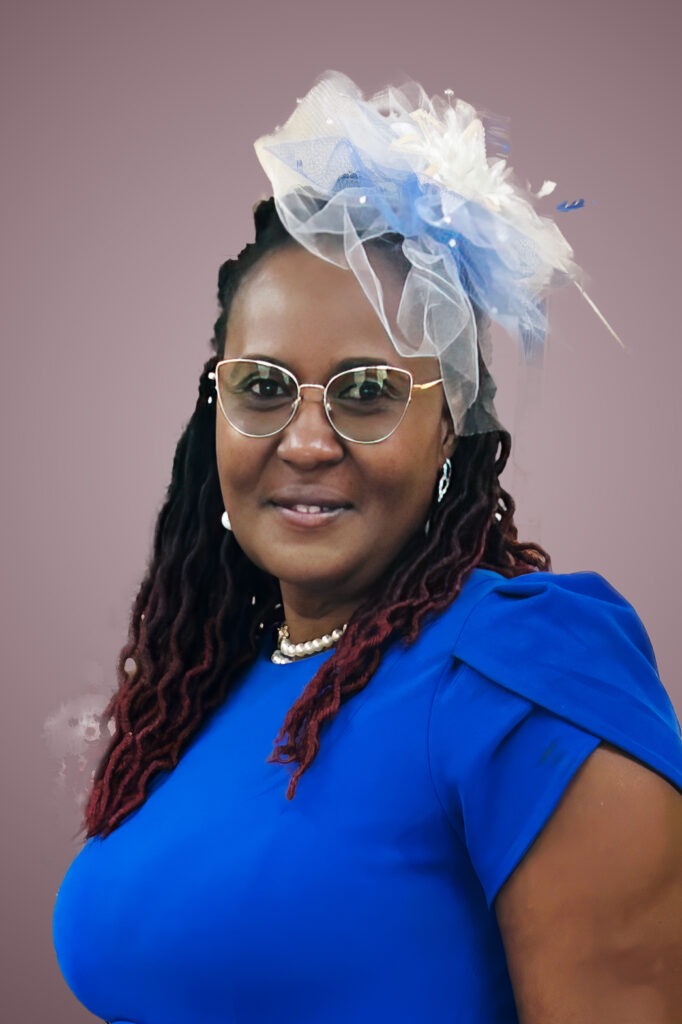
Taneasha Walker
Taneasha Walker is currently co-pastoring Word of Life Open Bible Church in Lehigh Acres, Florida, with her husband Dyecol. She serves on the Southeast Regional Board as an At- Large member. Taneasha has gained experience in every area of ministry, using this knowledge to effectively care for the local church body as well as the children that have been entrusted to her. She is passionate about prayer, utilizing it in every endeavor. In her free time, Taneasha’s hobbies include reading, singing, and traveling.
Featured Articles
A Finely Woven Tapestry: Seventy Years in Trinidad and Tobago
Published
3 months agoon
May 1, 2024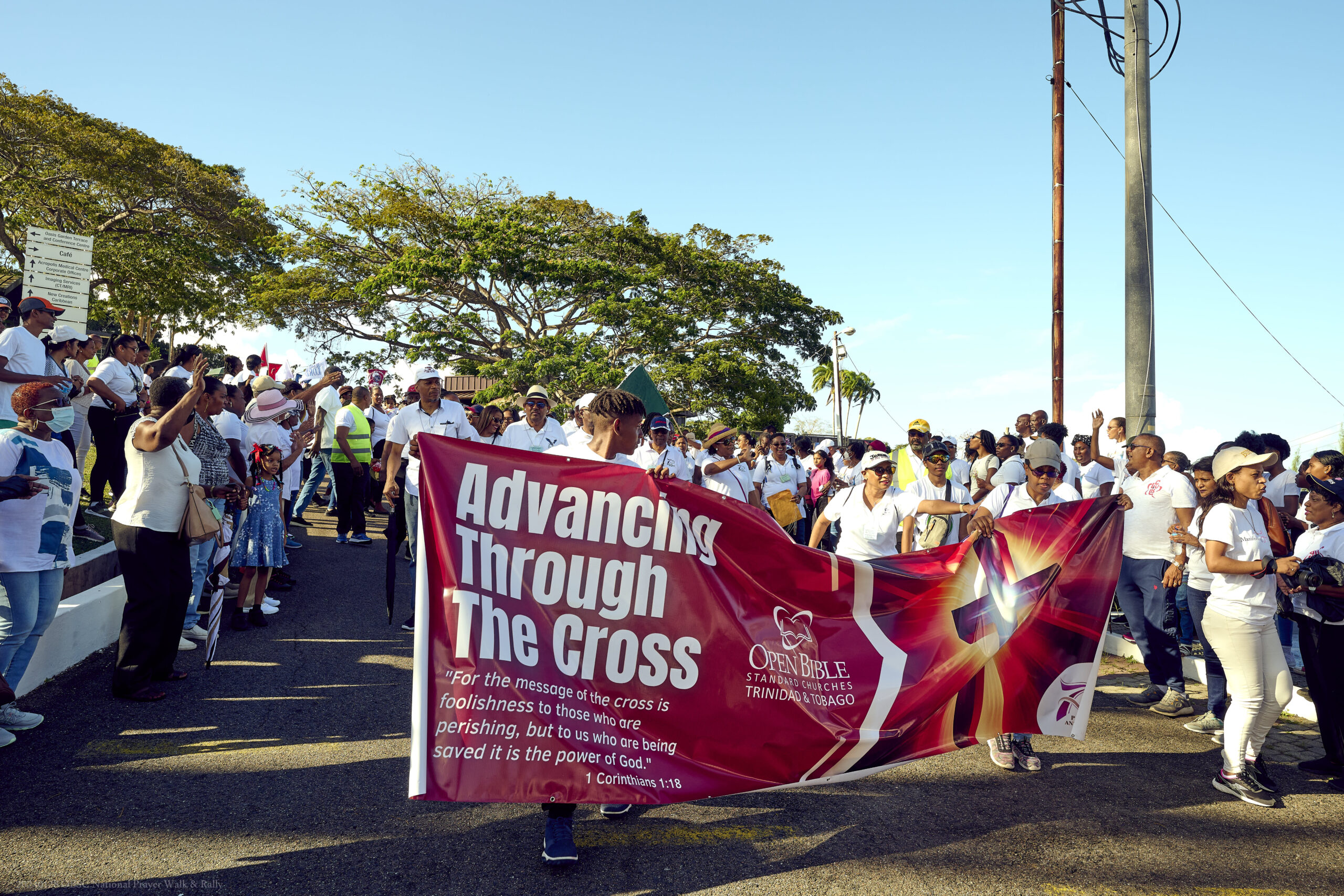
In 2024 Open Bible Standard Churches of Trinidad and Tobago (OBSCTT) commemorates its platinum anniversary: seventy years of faith, strength, and community. Symbolically, Trinidad and Tobago’s Open Bible story unfolds as a finely woven tapestry, blending diverse threads and vibrant and intricate patterns to form a beautiful piece of art. For seven decades, God has woven OBSCTT’s narrative, skillfully blending elements like missionaries, innovative outreach, powerful prayer, unified discipleship, embrace of revival, and the vibrant people of Trinidad and Tobago. Each thread, even if seeming inconsequential, plays a distinctive role in contributing to the magnificent tapestry of their journey.
Situated in the South Caribbean Sea, the Republic of Trinidad and Tobago boasts a rich cultural and religious diversity reflecting African, Indian, European, Chinese, and other influences. Christian, Hindu, Muslim, and indigenous beliefs are all practiced there. Despite Trinidad and Tobago’s small geographical footprint and population of just 1.4 million, Open Bible’s influence has left a significant impact both nationally and globally, contributing to Trinidad and Tobago’s social, civic, and healthcare realms (the founding of the Acropolis Medical Centre being a primary example). OBSCTT boasts nearly one hundred churches, numerous kindergartens, a private high school, INSTE, and a Bible college with three campuses.
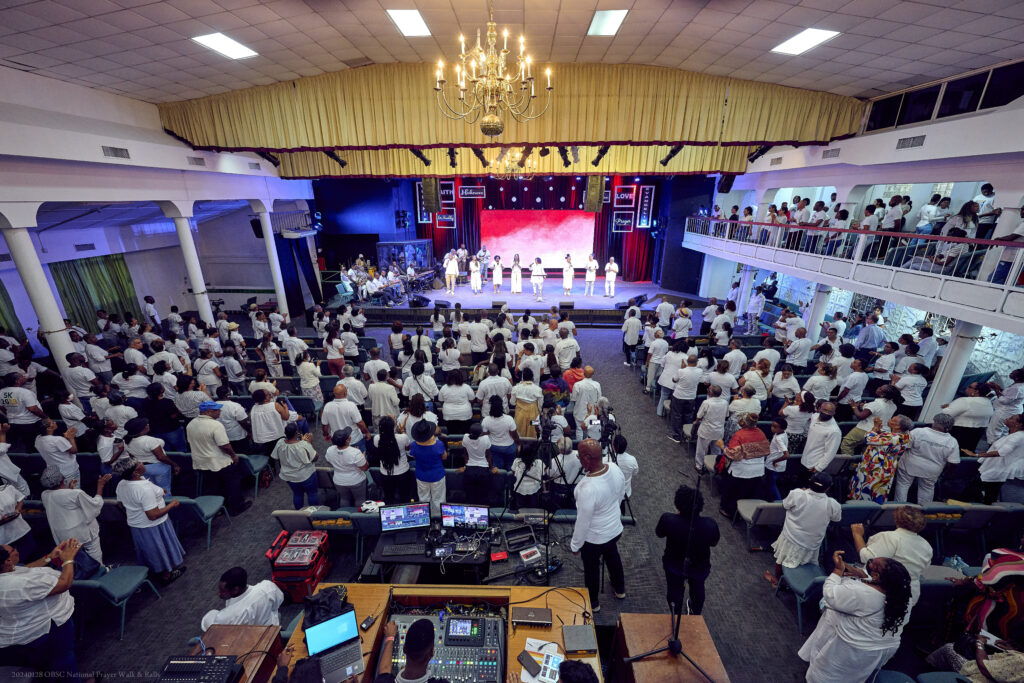
From its beginnings in 1956 under missionaries Kaare and Jean Wilhelmsen, OBSCTT had an emphasis on global outreach. Beginning their outreach in the neighboring country of Grenada in 1971, the churches in Trinidad and Tobago continually expanded their reach, eventually planting churches in South America, North America, Africa, and Europe. Trinidad and Tobago is also the home of Global Missions’ School of Global Leadership (SGL). The founding fathers and mothers of OBSCTT were full of missionary zeal and implanted this passion into the DNA of the churches. Today, it is a vital part of their identity.
From the first missionaries, the Wilhelmsens, to the present-day Lumbard family, thirty-eight Open Bible missionaries have served on the islands. These missionaries laid a robust foundation and equipped capable local leaders. Today, the relationship of local leaders with Open Bible’s Global Missions is a uniquely collaborative partnership. This collaboration and sense of unity was part of the foundation set by the missionaries from the very beginning. Dr. Don Bryan and his wife Ruth were missionaries in the founding days of Open Bible in Trinidad and Tobago (1956-1970). Dr. Bryan spoke of how togetherness was key to Open Bible’s success in Trinidad. Through prayer, the churches and missionaries worked together as a team “so the devil couldn’t divide us.”
Prayer was a unifying and foundational value in the churches. In particular, the Thursday morning Mountain Movers’ prayer meetings at the San Fernando church echoed Acts 19:11: “God did extraordinary miracles…” (NIV). Miracles were the norm, transforming lives as blind eyes were opened and demons cast out. Powerful proclamation of the gospel and God’s evident presence often led to entire families committing their lives to Christ, bringing explosive growth. Seventy years later, the powers of darkness persist but continue to be confronted in prayer services in many churches.
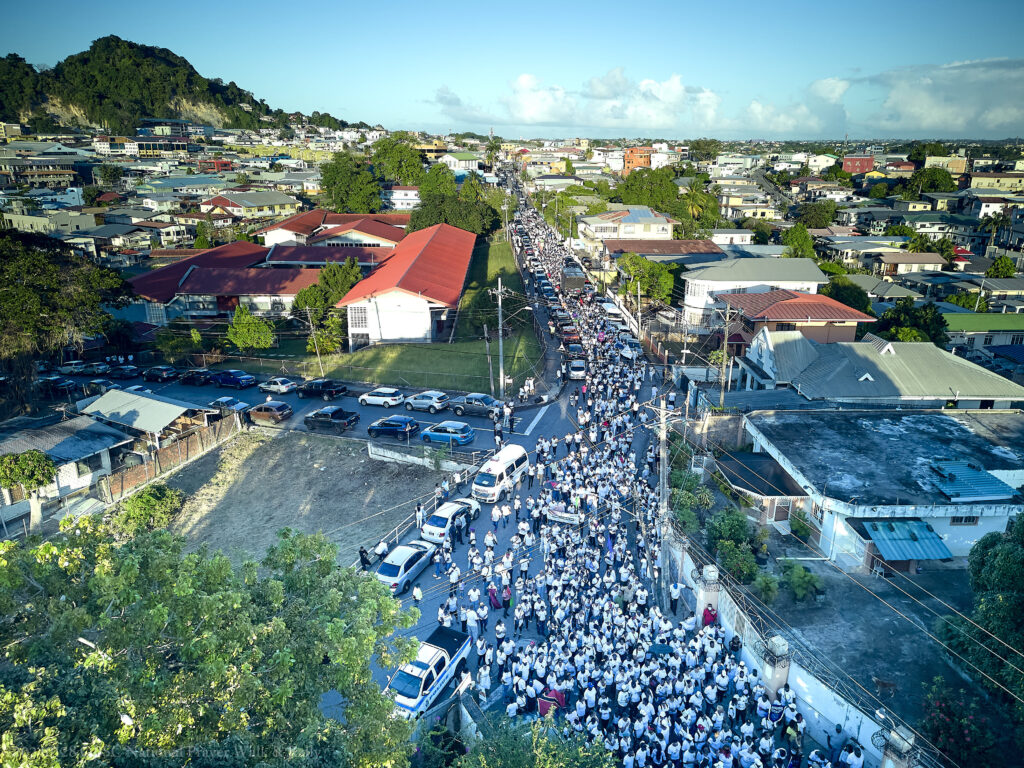
Recognizing the value Trinidadians placed on education, missionaries perceived a Kingdom opportunity and established Open Bible High School (OBHS) in 1967, emphasizing both academics and spiritual development to a student body from diverse faiths. At one time OBHS’s enrollment was the largest in the history of private schools on the island.
Open Bible Institute of Trinidad (OBIT), founded in 1956, continues to train Christian leaders for pastoral, missions, and evangelism ministries. It incorporates theological and uniquely practical training that is an engine for outreach and discipleship. In the early days, student teams went to outlying areas each Thursday to practice the skills they learned in Bible school. There they held outdoor meetings, connected with and discipled Mountain Movers attendees, gathered others and started Sunday schools, and baptized new converts. Their “practice” ministry began birthing new churches, and five of the first six OBSCTT churches were started by the students while still in school!
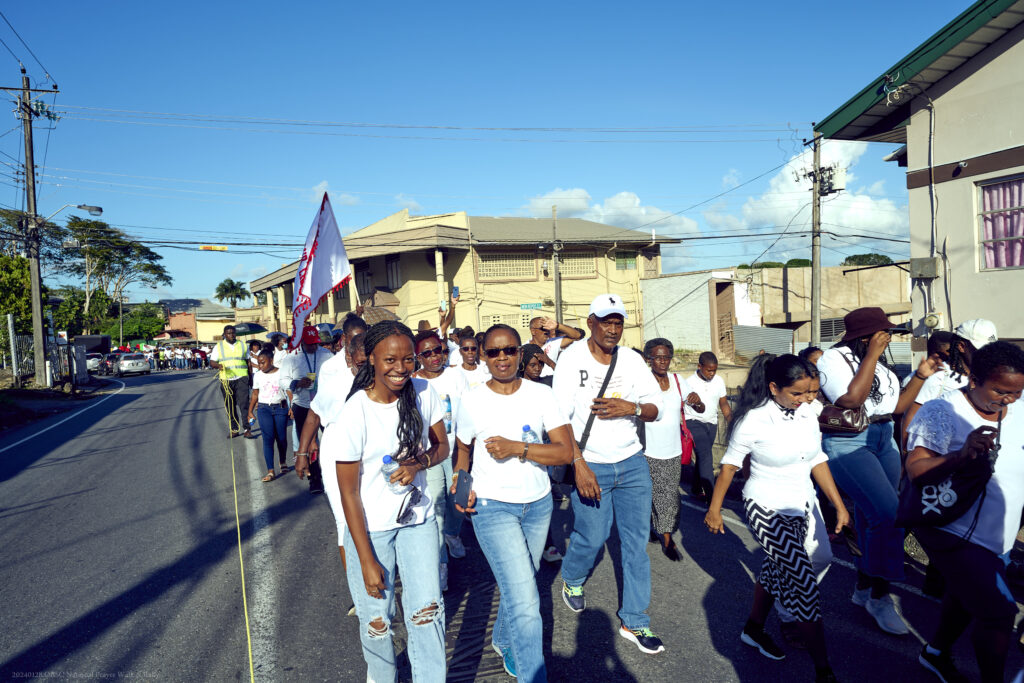
Just as there are many Open Bible missionaries woven into the OBSCTT tapestry, so Trinidad and Tobago is woven into the tapestries of the missionaries themselves, leaving an indelible mark on their lives. It wasn’t just the great food found on the islands that made an impression! More significantly, it was the relationships they formed there that shaped the missionaries. Many of the following missionaries have joined the “great cloud of witnesses,” but others share some of their stories (click HERE to see video interview clips): Kaare and Jean Wilhelmsen, Minnie Bruns, Don and Ruth Bryan, A.E. and Ginny Mitchell, Margaret Crandall, Dora Turner, William and Donna Whitlow, Robert and Wanda Moon, Ed and Betty Wood, Weldon and Rosetta Davis, Melvin and Barbara Kelderman, Tom and Helen Clark, Clayton and Suzanne Crymes, Leona Janzen (Venditti), John and Nadine Simmons, Phil and Priscilla Newell, Dan and Mardell LeLaCheur, Harvey and Alys Klapstein, Grant and Miriam Sickles, and Mike and Pamela Lumbard.
Symbolically, Trinidad and Tobago’s Open Bible story unfolds as a finely woven tapestry, blending diverse threads and vibrant and intricate patterns to form a beautiful piece of art.
The most vibrant and prominent threads in the tapestry God is weaving for Open Bible Standard Churches of Trinidad and Tobago are the nationals themselves. The 2 Timothy 2:2 principle of entrusting the work to others who will pass it on to others has been a key to continued growth and expansion. The names are too many to share, but here are just a few of the local ministers who have led with distinction over the years: Revs. Dr. Benjamin Agard, Charles and Charmaine Alexis, Keith Armoogan, Desmond Austin, Carlyle Chankersingh, Munroe Cox, Vicram Hajaree, Leroy Haynes, Dr. Andy and Ann Marie Homer, Benjamin Hunte, Calbert Mark, Romaish Mohan, Raule Reid, Cecil and Debbie Quamina, Errol Ramdass, Fitzroy Griffith, Jr., and Junior Yuille.
Rev. Dr. Benjamin Agard, National Elder-Director of OBSCTT, credits the preaching of the gospel of Christ and Him crucified – from the earliest of days until now – as a key to numerical and spiritual growth throughout OBSCTT’s history. The focus on the cross remains central to their identity. Minister Ann Marie Homer summed it up this way: “Just the fact that you can walk into any Open Bible church on a Sunday morning and hear the gospel of Jesus Christ being preached in truth is a major accomplishment. We have not shifted.”
Seventy years later, in this celebration of their platinum jubilee, we join with Open Bible Standard Churches of Trinidad and Tobago to look back at the tapestry God has woven through them and to celebrate His good work. Today, OBSCTT’s story reaches not only the islands of Trinidad and Tobago but extends to the uttermost parts of the world. As it says in Psalm 2:8, “Ask me, and I will make the nations your inheritance, the ends of the earth your possession” (NIV). Such an incredible inheritance and a rich legacy – we can only imagine what God will do next!
About the Author
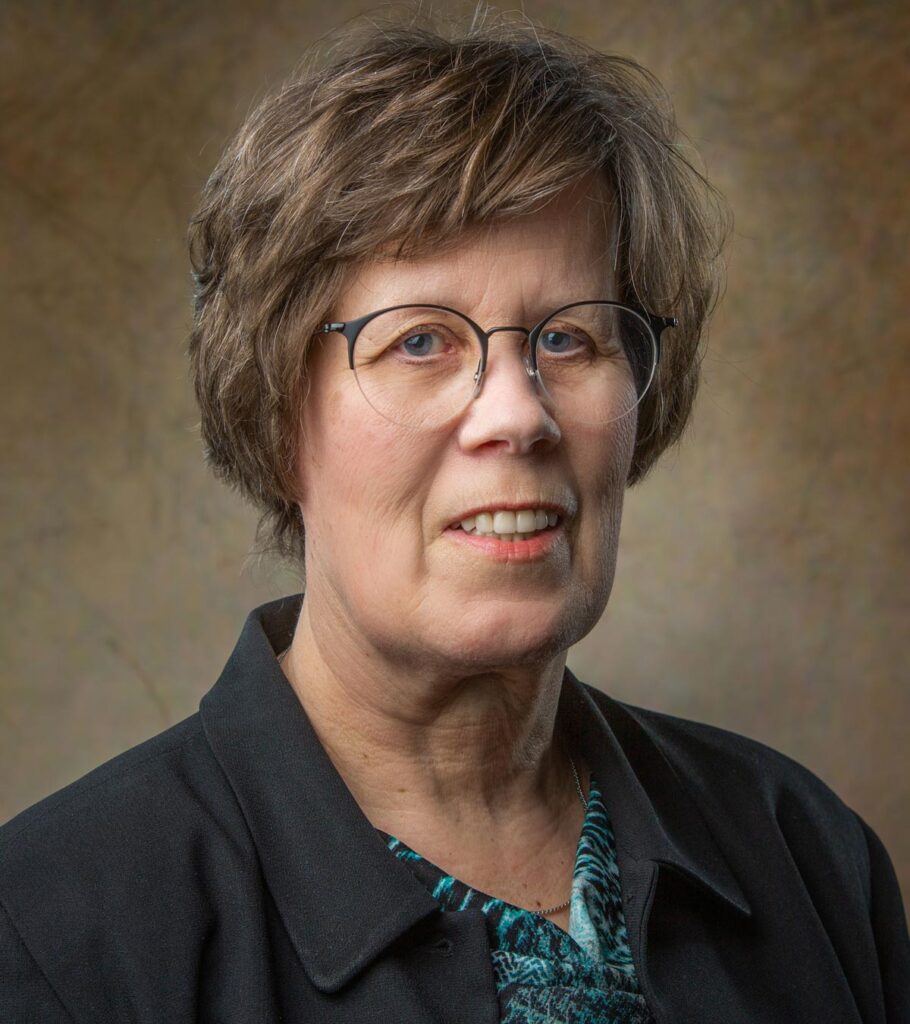
Tammy Swailes
Tammy Swailes is passionate about cross-cultural Christian education, so working with INSTE Global Bible College to disciple and equip leaders throughout Europe and beyond is a great fit! Tammy has lived in Europe since 1999 – first in Hungary and now Ukraine. Before that, she was in Japan, as well as Spokane, Washington. She now serves as INSTE regional director in Europe, assisting INSTE programs in five languages. Tammy has her undergraduate degrees in both Missions and Christian Education, and a MA in Intercultural Studies. Photography, good coffee, multi-cultural experiences, and the family’s Yorkie are some of Tammy’s favorite things.
Featured Articles
UN TAPIZ FINAMENTE TEJIDO: La Biblia Abierta de Trinidad y Tobago celebra setenta años de ministerio
Published
3 months agoon
May 1, 2024
Las Iglesias Estándar de la Biblia Abierta de Trinidad y Tobago (OBSCTT, por sus siglas en inglés) conmemoran en 2024 su aniversario de platino: Setenta años de fe, fortaleza y comunidad. La historia de la Biblia Abierta de Trinidad y Tobago se desarrolla simbólicamente como un tapiz finamente tejido, en el que se mezclan diversos hilos y patrones vibrantes y complejos para formar una hermosa obra de arte. Durante siete décadas, Dios ha tejido la historia de OBSCTT, mezclando hábilmente elementos como los misioneros, el alcance innovador, la oración poderosa, un discipulado unificado, la acogida del avivamiento y el pueblo vibrante de Trinidad y Tobago. Cada hilo, aunque parezca insignificante, desempeña un papel distintivo que contribuye al magnífico tapiz de su trayectoria.
La República de Trinidad y Tobago, ubicada en el Mar Caribe Sur, cuenta con una rica diversidad cultural y religiosa que refleja influencias africanas, indias, europeas, chinas y de otros lugares. Allí se practican creencias cristianas, hindúes, musulmanas e indígenas. A pesar de la pequeña extensión geográfica de Trinidad y Tobago y de su población de tan sólo un millón cuatrocientos mil habitantes, la influencia de la Biblia Abierta ha dejado un impacto significativo tanto a nivel nacional como mundial, al contribuir a los ámbitos social, cívico y al de la asistencia médica de Trinidad y Tobago (un ejemplo fundamental es la fundación del Centro Médico Acrópolis). La OBSCTT cuenta con casi cien iglesias, numerosas guarderías, un colegio secundario privado, INSTE, y un instituto bíblico con tres sedes.

Desde sus inicios en 1956, bajo la dirección de los misioneros Kaare y Jean Wilhelmsen, la OBSCTT hizo hincapié en el alcance global. Las iglesias de Trinidad y Tobago, que comenzaron su labor en el país vecino de Granada en 1971, fueron expandiendo su alcance en forma contínua hasta llegar a plantar iglesias en Sudamérica, Norteamérica, África y Europa. Trinidad y Tobago es también la sede de la Escuela de Liderazgo Global (SGL) de Misiones Globales. Los fundadores de la OBSCTT estaban llenos de celo misionero e implantaron esta pasión en el ADN de las iglesias. Hoy en día, es una parte vital de su identidad.
Desde la familia Wilhelmsen, los primeros misioneros, hasta la actual familia Lumbard, treinta y ocho misioneros de la Biblia Abierta han servido en las islas. Estos misioneros fundaron una base sólida y equiparon a líderes locales competentes. Hoy en día, la relación entre los líderes locales con las Misiones Globales de la Biblia Abierta es una asociación de colaboración única. Esta colaboración y sentido de unidad fue parte de los cimientos establecidos por los misioneros desde el principio. El Dr. Don Bryan y su esposa Ruth fueron misioneros en la época en que se fundó La Biblia Abierta en Trinidad y Tobago (1956-1970). El Dr. Bryan habló de cómo la unidad fue clave para el éxito de la Biblia Abierta en Trinidad. A través de la oración, las iglesias y los misioneros trabajaron juntos como un equipo «para que el diablo no pudiera dividirnos».
La oración fue el valor unificador y cimentador de las iglesias. En especial, en la iglesia de San Fernando las reuniones de oración de los Movedores de Montañas de los jueves por la mañana hacían resonar las palabras de Hechos 19:11: «Dios hacía milagros extraordinarios…». (NVI). Los milagros fueron la norma, transformaron vidas al abrir los ojos de los ciegos y expulsar demonios. La poderosa proclamación del Evangelio y la evidente presencia de Dios llevaron a menudo a familias enteras a entregar sus vidas a Cristo, lo que trajo consigo un crecimiento explosivo. Setenta años después, los poderes de las tinieblas persisten, pero siguen siendo confrontados en los servicios de oración de muchas iglesias.

Los misioneros, reconociendo el valor que los trinitenses atribuían a la educación, vieron una oportunidad para el Reino y crearon en 1967 la Escuela Secundaria de la Biblia Abierta (OBHS, por sus siglas en inglés), que hacía hincapié en el desarrollo académico y espiritual de un alumnado de diversas religiones. Llegó un momento en que la matrícula de la OBHS era la mayor de la historia de las escuelas privadas de la isla.
El Seminario de la Biblia Abierta de Trinidad (OBIT, por sus siglas en inglés), fundado en 1956, sigue formando a líderes cristianos para ministerios pastorales, misioneros y de evangelización. El seminario incorpora una formación teológica y práctica única que constituye un motor para la evangelización y el discipulado. En sus inicios, los equipos de estudiantes se desplazaban cada jueves a las zonas periféricas para poner en práctica lo aprendido en la escuela bíblica. Allí celebraron reuniones al aire libre, se pusieron en contacto e instruyeron a los asistentes de los Movedores de Montañas, reunieron a otros e iniciaron escuelas dominicales, y bautizaron a nuevos creyentes. Su «práctica» del ministerio comenzó a dar a luz nuevas iglesias, ¡y cinco de las primeras seis iglesias de la OBSCTT fueron fundadas por los propios estudiantes mientras aún estaban en la escuela!

Al igual que hay muchos misioneros de la Biblia Abierta entretejidos en el tapiz de la OBSCTT, así Trinidad y Tobago está entretejida en los tapices de los propios misioneros, dejando una huella indeleble en sus vidas. No fue sólo la magnífica comida de las islas lo que les impresionó. Más importante aún, fueron las relaciones que entablaron allí las que dieron forma a los misioneros. Si bien muchos de los siguientes misioneros se han unido a la «gran nube de testigos», otros nos cuentan algunas de sus historias (haga clic en los enlaces para ver los vídeos de las entrevistas): Kaare y Jean Wilhelmsen, Minnie Bruns, Don y Ruth Bryan, A.E. y Ginny Mitchell, Margaret Crandall, Dora Turner, William y Donna Whitlow, Robert y Wanda Moon, Ed y Betty Wood, Weldon y Rosetta Davis, Melvin y Barbara Kelderman, Tom y Helen Clark, Clayton y Suzanne Crymes, Leona Janzen (Venditti), John y Nadine Simmons, Phil y Priscilla Newell, Dan y Mardell LeLaCheur, Harvey y Alys Klapstein, Grant y Miriam Sickles, y Mike y Pamela Lumbard.
La historia de la Biblia Abierta de Trinidad y Tobago se desarrolla simbólicamente como un tapiz finamente tejido, en el que se mezclan diversos hilos y patrones vibrantes y complejos para formar una hermosa obra de arte.
Los hilos más vibrantes y prominentes en el tapiz que Dios está tejiendo en las Iglesias de la Biblia Abierta de Trinidad y Tobago son los propios nacionales. El principio de 2 Timoteo 2:2 de encargar la obra a personas idóneas que la transmitirán a otros ha sido clave para el crecimiento y la expansión continuos. Son demasiados nombres para mencionarlos a todos, pero he aquí sólo algunos de los ministros locales que han dirigido con distinción a lo largo de los años: Reverendos Dr. Benjamín Agard, Charles y Charmaine Alexis, Keith Armoogan, Desmond Austin, Carlyle Chankersingh, Munroe Cox, Vicram Hajaree, Leroy Haynes, Dr. Andy y Ann Marie Homer, Benjamín Hunte, Calbert Mark, Romaish Mohan, Raule Reid, Cecil y Debbie Quamina, Errol Ramdass, Fitzroy Griffith, Jr. y Junior Yuille.
El Rev. Dr. Benjamín Agard, Anciano-director nacional de la OBSCTT, da merito a la predicación, desde los primeros días hasta ahora, del evangelio de Cristo y de este crucificado, como la clave del crecimiento numérico y espiritual a lo largo de la historia de la OBSCTT. El enfoque del mensaje de la cruz sigue siendo fundamental para su identidad. La ministra Ann Marie Homer lo resumió así: «El solo hecho de que usted pueda entrar en cualquier iglesia de la Biblia Abierta un domingo por la mañana y escuchar el verdadero evangelio de Jesucristo predicado, constituye un gran logro. No nos hemos desviado».
Setenta años después, en esta celebración de su jubileo de platino, nos unimos a las Iglesias Estándar de la Biblia Abierta de Trinidad y Tobago para mirar hacia atrás, al tapiz que Dios ha tejido a través de ellos y celebrar Su buena obra. Hoy, la historia de la OBSCTT no sólo llega a las islas de Trinidad y Tobago, sino que se extiende hasta los confines de la tierra. Como dice el Salmo 2:8: «Pídeme, y te daré por herencia las naciones, y como posesión tuya los confines de la tierra.» (RVR-60). Qué herencia tan increíble y qué legado tan rico: ¡sólo podemos imaginar lo que Dios hará a continuación!
Sobre la autora

Tammy Swailes
¡Tammy Swailes es una apasionada de la educación cristiana multicultural, por lo que trabajar con el Seminario Bíblico Global INSTE para discipular y equipar a los líderes en toda Europa y más allá encaja a la perfección! Tammy ha vivido en Europa desde 1999 (primero en Hungría y ahora en Ucrania). Antes de eso, vivió en Japón, así como en Spokane, Washington. En la actualidad se desempeña como directora regional de INSTE en Europa, colaborando con los programas de INSTE en cinco idiomas. Tammy tiene una licenciatura en Misiones y otra en Educación Cristiana, y una maestría en Estudios Interculturales. Algunas de las cosas que más le gustan a Tammy son la fotografía, el buen café, las experiencias multiculturales y el perrito Yorkie de la familia.
Follow Us
Subscribe to the Message



